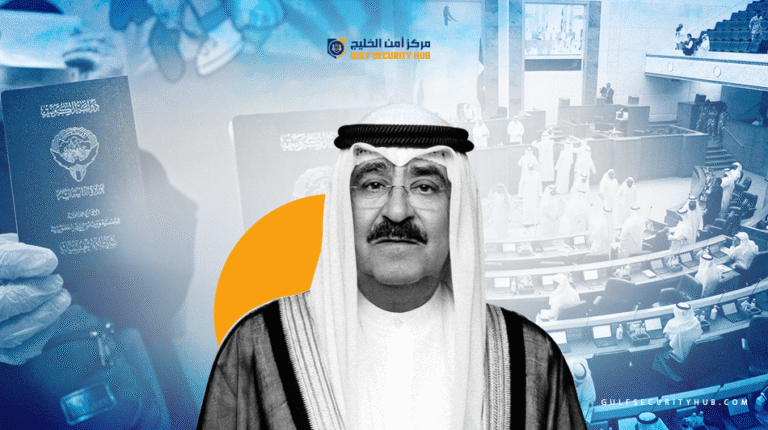Executive Summary
Since 2024, Kuwait has witnessed a large-scale campaign aimed at revoking the citizenship of thousands of its citizens, with more than 42,000 Kuwaitis stripped of their nationality, not counting those affected indirectly. This marks a significant shift from the state’s previous approach, where citizenship revocation was rare, limited to specific individuals, and typically involved judicial decisions. Officially framed as an initiative to rectify citizenships acquired illegally and safeguard national security, the campaign has sparked deeper political interpretations, viewed by many as an instrument to reshape the entire political landscape of the country.
These developments coincide with extraordinary measures taken by Kuwait’s Emir, Sheikh Meshaal Al-Ahmad Al-Sabah, who dissolved the National Assembly and suspended certain constitutional articles for up to four years. The Emir justified these actions by citing the need for a “comprehensive review of the democratic process and an end to the political deadlock hindering development.”
This detailed report explores the intersection between declared legal motivations—such as enforcing laws against fraudulent citizenship claims, dual nationality, or security-related concerns—and undisclosed political and security motives. On one hand, the campaign has targeted groups such as naturalized wives of Kuwaiti citizens and members of specific tribes deemed to have acquired citizenship through dubious means, framed within a government narrative focused on fighting corruption and reducing state burdens. On the other hand, observers argue that the timing and scope of these actions indicate a strategic effort to undermine parliamentary opposition and realign voter demographics to serve new power balances.
The ruling family plays a pivotal role in these events, utilizing citizenship as a tool within internal power struggles among its various factions. Historically, granting citizenship—known as political naturalization—has been used to expand bases of loyalty, strengthening the regime’s position against opposition groups during the 1960s and 1990s, and more recently bolstering the influence of certain family members aspiring to the emirship. Today, the revocation of citizenship serves as a reverse mechanism to recalibrate this strategy.
Emir Sheikh Meshaal Al-Ahmad Al-Sabah emerges as a decisive figure in this phase, adopting a firm approach aimed at restoring the political system to what he views as “the correct path.” His bold decisions, ranging from dissolving the parliament and suspending constitutional provisions to the extensive campaign of citizenship revocations, are best understood as part of a broader effort to consolidate power and reorganize internal governance (both within the ruling family and across state institutions). However, such measures are likely to have limited long-term effectiveness unless accompanied by deeper constitutional reforms that address fundamental governance issues, restructure executive-legislative relationships, and establish transparent succession mechanisms within the ruling family. These steps are essential to ensuring sustained stability beyond short-term solutions.
This comprehensive analysis provides an in-depth examination of the reshaping of political life in Kuwait, drawing on insights and analyses from a select group of specialized researchers.

